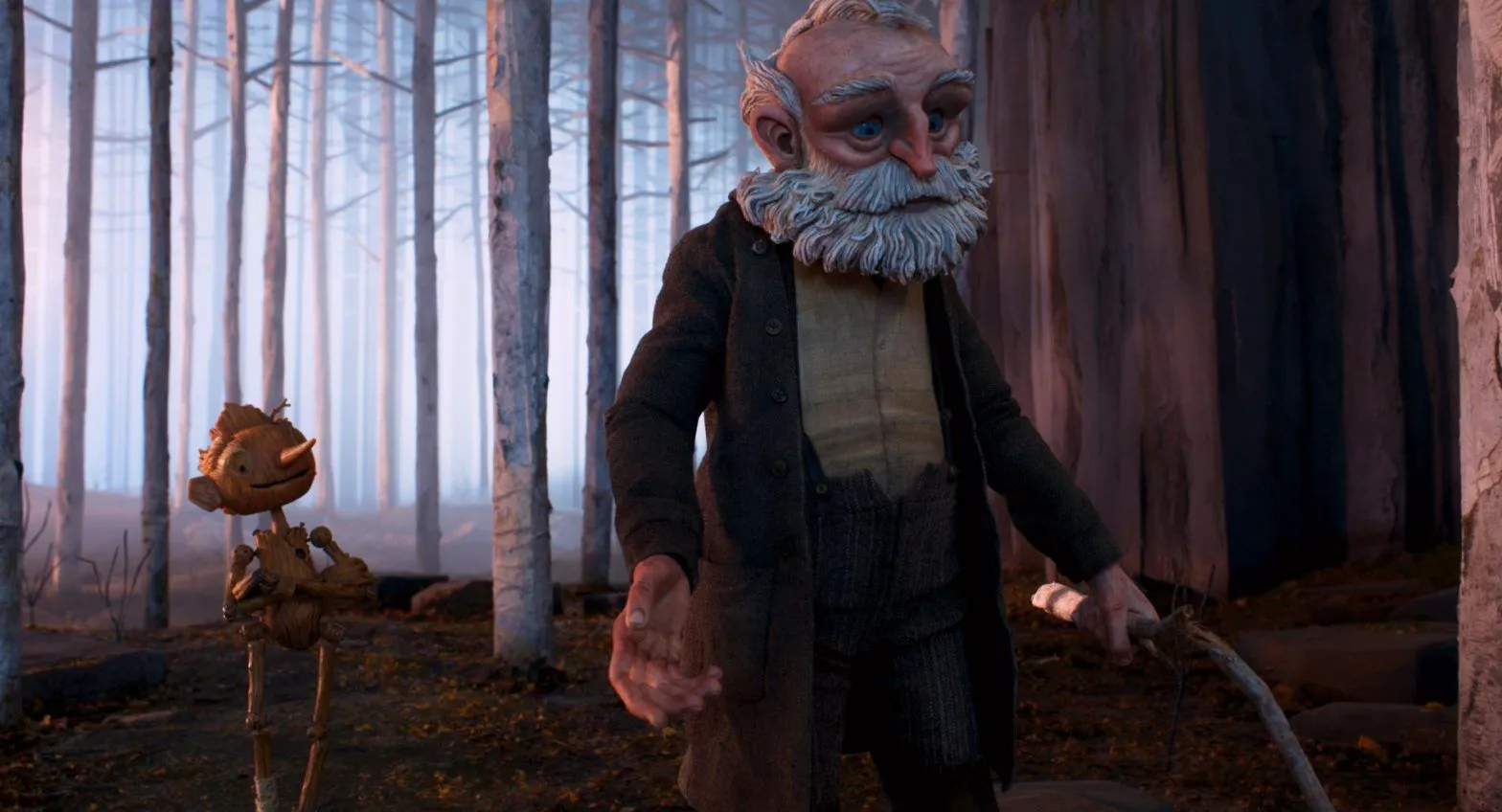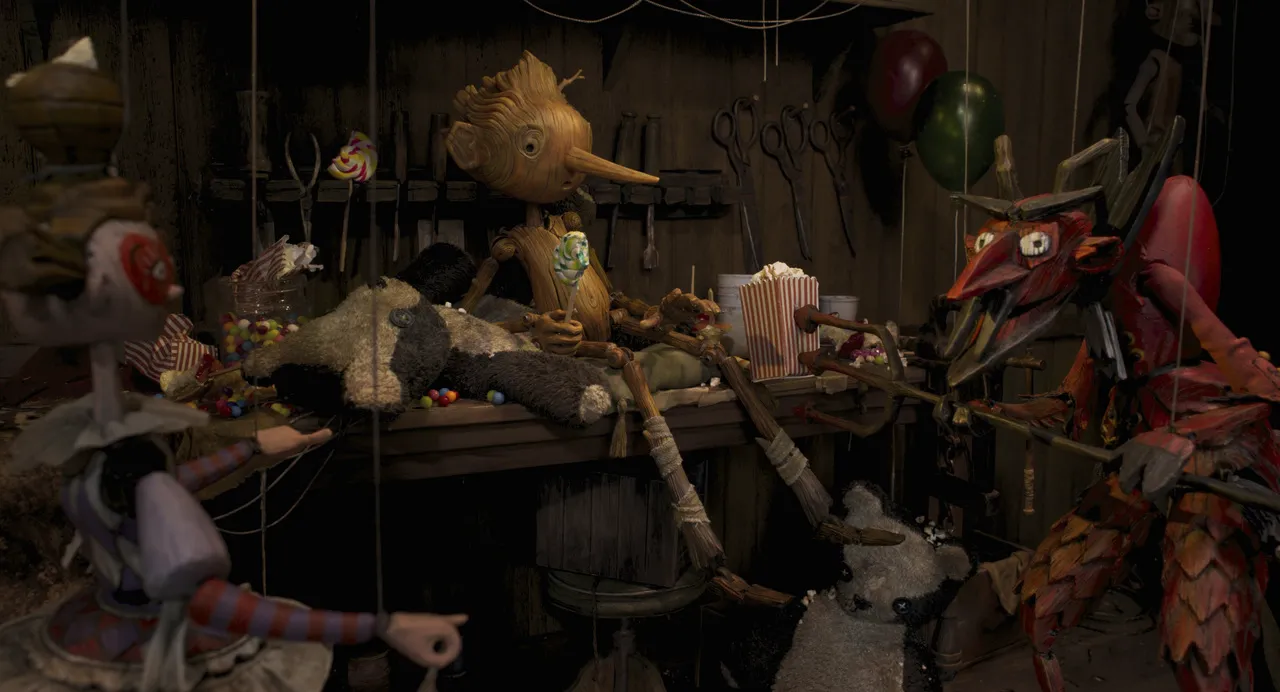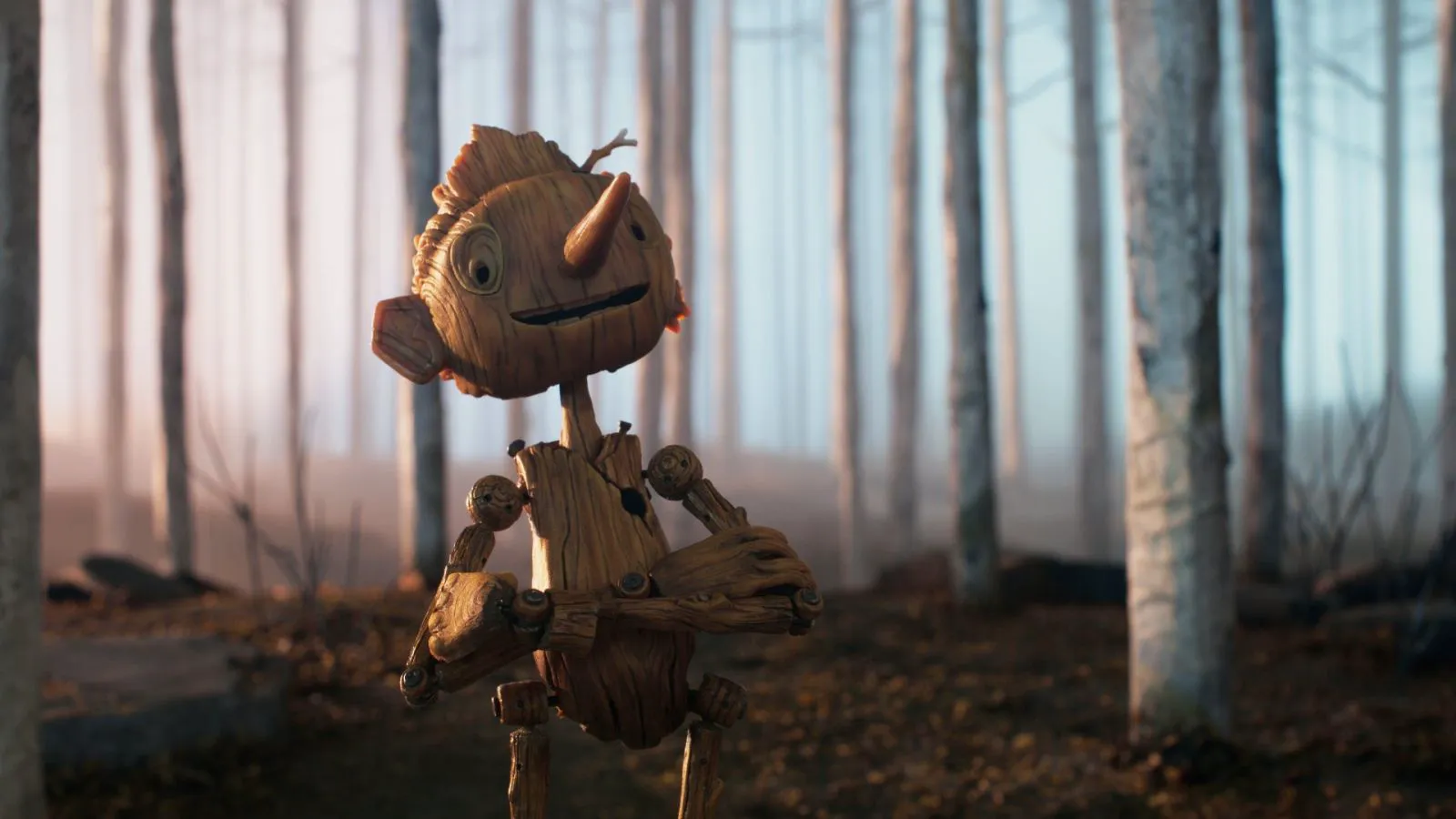A new adaptation of Carlo Collodi’s tale transports the wooden Pinocchio to Fascist Italy in the 1930s. To support his father, Geppetto, Pinocchio decides to become a circus performer. Life makes harsh adjustments, and soon Geppetto sets out in search of his child.

A still from Guillermo del Toro’s “Pinocchio” animated film
It sometimes seems fair to say that Guillermo del Toro, who has made a name for himself by reinterpreting horror over the past twenty years, doesn’t have bad works or days. Considering that the creation process for the new “Pinocchio” has been ongoing since at least 2008, it’s also surprising how the director managed not to lose his imagination and energy in creating one of the most emotional and visually striking animated films of recent years. This second version of the tale about the wooden boy with a nose that grows with every lie surpasses not only the neighboring (and bland) remake with Tom Hanks, but also, perhaps, the original Disney classic. The new Netflix project combines universal themes for children and adults about the pain we face regardless of age, the acceptance of death, and the struggle against a fascist regime. It’s hard to imagine such a combination in any other commercial project.

A still from Guillermo del Toro’s “Pinocchio” animated film
Imperfect Fathers and Sons
Creative control and his own name in the title allowed del Toro to begin “Pinocchio” with words about imperfect fathers and sons. Carpenter Geppetto (David Bradley) and his living son Carlo were connected by everything and more. Despite the absence of a mother, both developed a wonderful bond that was severed when a bomb dropped on the church, where Carlo had briefly run inside. The bomb was dropped on the house of God by chance, returning from another mission. Geppetto despaired, went on a binge, and after many years, never came to terms with the loss. One night, in a drunken stupor, to the sound of thunder, he creates a far from ideal replacement for Carlo in the form of Pinocchio (debutant Gregory Mann). Ahead lies a long journey from love to complete acceptance, from domestic troubles to a real battlefield, from death to immortality (and back), before the young Frankenstein reconciles with his compassionate creator and understands: things that happen are inevitable, what is destined to die will die anyway.

A still from Guillermo del Toro’s “Pinocchio” animated film
Finding Dignity and Love Amidst the Darkness
Such philosophy in the history-changing year of 2022 may seem like the final straw in an ocean of suffering, because now there is and cannot be anything more valuable than escapist consolations. But del Toro doesn’t sweeten the pill, even making the fairy tale a realistic reality and pain, asking us to find splinters of dignity and love amidst the horror and darkness. Stopping the natural course of events is beyond the power of wooden statues, people, reflective memoirist-crickets (Ewan McGregor), and even death-commanding sphinxes voiced by Tilda Swinton. Even in the belly of a bloodthirsty whale and amidst floating mines, there is a chance for recovery, liberation, sometimes a lie for salvation.
Fathers Under the Microscope
“Pinocchio” analyzes fathers as ruthlessly meticulously as Charlotte Wells’ recent “Aftersun” - different types, leading to a common denominator. Geppetto knows that he cannot replace Carlo, but will continue to emotionally pressure Pinocchio, which will lead to sad consequences. The local head of administration (Ron Perlman) sends his own son (Finn Wolfhard) to a camp for young soldiers, refusing to recognize his fears. The insidious puppeteer Volpe (Christoph Waltz) uses both Pinocchio and his serving monkey Spazzatura (Cate Blanchett) for his own purposes, before dying, incapable of transformation.
Sometimes the director, along with co-authors Mark Gustafson and Patrick McHale, flies into light didacticism, but by the finale, he heads into the sunset in the most fearless, ready-for-anything way. The fantastic work of 40 animators, manually creating Italy, the underworlds, and other spaces; the soundtrack by Alexandre Desplat, melancholically sincere musical numbers, references to del Toro’s previous works (“Pan’s Labyrinth”, “Nightmare Alley”) are capable of resonating with most viewers. “Pinocchio” chooses life, gives it away, advises to do the same to preserve the remnants of humanity, the reserves of which are actually limitless.